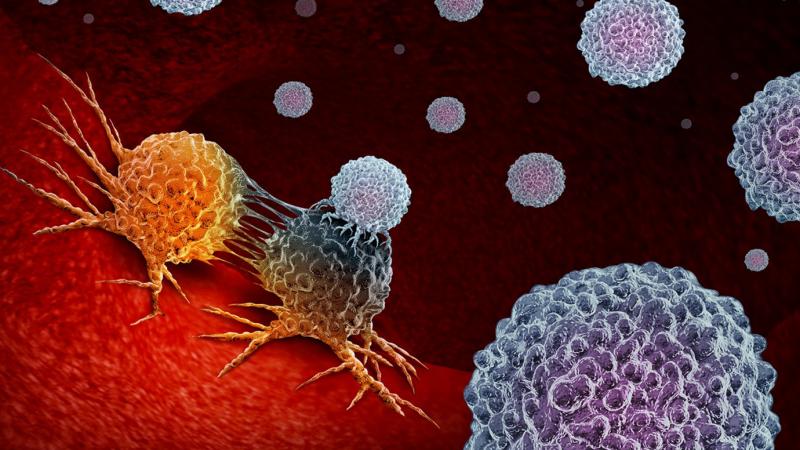Cancer, a complex and devastating disease, has plagued humanity for centuries. Traditional cancer treatments such as chemotherapy and radiation therapy have been the mainstay of cancer treatment for decades. While these approaches have saved many lives, they often come with severe side effects and limited efficacy, especially in advanced stages of the disease. However, a new era has dawned in cancer treatment with the emergence of Cancer Immunotherapy. Harnessing the power of the body's immune system to fight cancer, immunotherapy is revolutionizing the way we approach this formidable disease. In this article, we will explore the concept of cancer immunotherapy, its different approaches, and its potential as a groundbreaking treatment modality.
Cancer Immunotherapy is a form of treatment that utilizes the body's immune system to recognize, attack, and destroy cancer cells. The immune system, which is designed to protect the body against foreign invaders like bacteria and viruses, has the remarkable ability to distinguish between healthy cells and abnormal, cancerous cells. However, cancer cells can sometimes evade the immune system's surveillance or create an immunosuppressive microenvironment that prevents immune cells from recognizing and eliminating them.
The Global Cancer Immunotherapy Market Was Valued At US$ 93,407.0 Mn In 2021 And Is Forecast To Reach A Value Of US$ 180,137.7 Mn By 2028 At A CAGR Of 9.9% Between 2022 And 2028.
Immunotherapy employs various strategies to overcome these hurdles and enhance the body's natural immune response against cancer cells. Unlike traditional treatments that directly target cancer cells, immunotherapy works by boosting the immune system's ability to identify and destroy tumors, offering a potentially more precise and durable approach to cancer treatment.
Checkpoint Inhibitors: One of the most significant breakthroughs in cancer immunotherapy has been the development of checkpoint inhibitors. Checkpoints are molecules on immune cells that regulate the immune response, preventing it from becoming too active and causing harm to healthy tissues. However, cancer cells can exploit these checkpoints to evade detection by immune cells. Checkpoint inhibitors are drugs that block these checkpoints, allowing the immune system to mount a robust attack against cancer cells. Pembrolizumab and nivolumab are examples of checkpoint inhibitors approved for the treatment of various cancers.
CAR-T Cell Therapy: Chimeric Antigen Receptor T-cell (CAR-T) therapy is a personalized form of immunotherapy that involves modifying a patient's own immune cells to specifically recognize and attack cancer cells. T cells, a type of immune cell, are extracted from the patient and engineered to express a synthetic receptor called a CAR, which enables them to recognize specific proteins on cancer cells. The modified T cells are then infused back into the patient, where they multiply and target the cancer cells. CAR-T cell therapy has shown remarkable success in treating certain types of blood cancers, such as leukemia and lymphoma.
Cancer Vaccines: Cancer vaccines are designed to stimulate the immune system to recognize and attack cancer cells. These vaccines can be divided into two categories: preventive vaccines and therapeutic vaccines. Preventive vaccines, like the human papillomavirus (HPV) vaccine, target viruses known to cause certain cancers, thus reducing the risk of developing those cancers. Therapeutic vaccines, on the other hand, are used to treat existing cancers by training the immune system to recognize specific tumor antigens and mount an immune response against them.
Adoptive Cell Transfer: Adoptive cell transfer (ACT) involves harvesting immune cells, often T cells, from a patient and expanding them in the laboratory before reintroducing them into the patient's body. The expanded immune cells are better equipped to recognize and destroy cancer cells. ACT can be performed with or without genetic modification of the immune cells to enhance their anti-cancer properties. This approach has shown promise in treating melanoma and certain types of solid tumors.
Cancer Immunotherapy has demonstrated remarkable success in treating various types of cancers and has transformed the lives of countless patients. Unlike traditional treatments, immunotherapy can produce durable responses and long-term remission, offering hope to individuals with advanced and hard-to-treat cancers. Furthermore, immunotherapy can be used in combination with other treatment modalities, such as chemotherapy and radiation therapy, to enhance their effectiveness.
